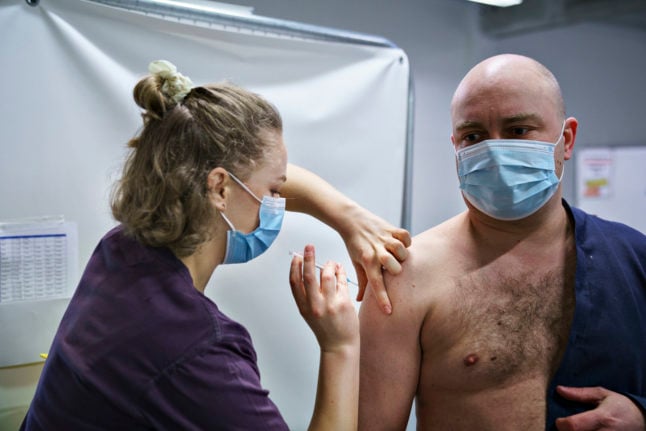COPENHAGEN
Masks and early closing: Denmark clamps down on Copenhagen nightlife
Denmark's government has imposed 10pm closing times on bars and restaurants in Copenhagen and its 16 surrounding municipalities and made face masks obligatory for customers.
Published: 15 September 2020 12:40 CEST
Updated: 15 September 2020 15:34 CEST
Updated: 15 September 2020 15:34 CEST

The new restrictions, which come into force on Thursday, are intended to bring down rising rates of infection in the country and will stay in place until October 1st.
“We are giving a clear message to the entire population: reduce social contacts over the autumn. If we do nothing now, we risk being on the brink of something that could develop into another wave,” the country's health minister, Magnus Heunicke, said at the press conference announcing the new measures, according to state broadcaster DR.
According to a press release issued with the announcement, the new restrictions will be backed by increased policing of nightlife hotspots, with officers empowered to issue temporary bans on gathering outside in certain areas.
Face masks will be required when entering the bar or restaurant, and when moving around to go to the toilet. They will not be required when customers are sitting down. Waiting staff and restaurant management will need to wear masks when circulating between customers. Children are exempted.
The 10pm closing rule will also apply to private parties, Heunicke stressed, and according to the press release, people are asked not to hold any parties or private gatherings with anyone apart from their very closest circle of friends.
He acknowledged that this would be a challenge for young people.
“I know it might be difficult for them, but they have to get involved, just as they did so well in the spring. If you just look at our experience from Aarhus, we managed to win the battle,” he said, noting that Aarhus, the last city to be hit by an outbreak, was now seeing just five new infections a day.
Kåre Mølbak from Denmark's infectious diseases agency, Statens Serum Institut, at the press conference said the recommendation was for Danes in the capital region to limit their socialising to the same group of five to ten people.
“See the same good friends again and again and postpone the big meeting of cousins until next year,” he said.
“You can still hold weddings and confirmation parties if you can follow the Danish Health Authority's guidelines, but our request is for you to stay within the 10 pm rule,” Heunicke said.
The government is also asking restaurants and bars to put up signs stating the maximum number of people allowed if they are to stay under the maximum number of people per square metre, and to then count their customers.
“This will, among other things, strengthen the police's ability to enforce compliance,” the government said in its press release.
Police will also work harder to enforce the one metre rule for bars and restaurants, with owners asked to make sure customers comply.
The measures apply to Copenhagen, and the surrounding municipalities of Albertslund, Ballerup, Brøndby, Dragør, Frederiksberg, Gentofte, Gladsaxe, Glostrup, Herlev, Hvidovre, Høje-Taastrup, Ishøj, Lyngby-Tårbæk, Rødovre, Tårnby, Vallensbæk.
The earlier restrictions brought in on September 7th, which included a maximum of 50 people for gatherings, midnight closing, and a requirement for restaurants and bars to take contact details of their customers, which were set to expire on 22 September, are also being extended for Greater Copenhagen until October 1st.
At the press conference, Mølbak said that it was difficult to say whether what Denmark was now seeing was the second wave, or a continuation of the first.
“With the strong lockdown we had in March, the first wave was not really allowed to develop, and that was our super-weapon. So we never really finished the first wave, and whether we call this first or second wave is just semantics,” he said.
He said his agency would like to see Denmark's reproduction number sink below one before relaxing the measures again.
“We would like to see a significant break in the infection curve before we can be really calm,” he said, warning that if the measures fail to work, Denmark might have to follow Israel and impose a second lockdown.
Url copied to clipboard!


 Please whitelist us to continue reading.
Please whitelist us to continue reading.
Member comments